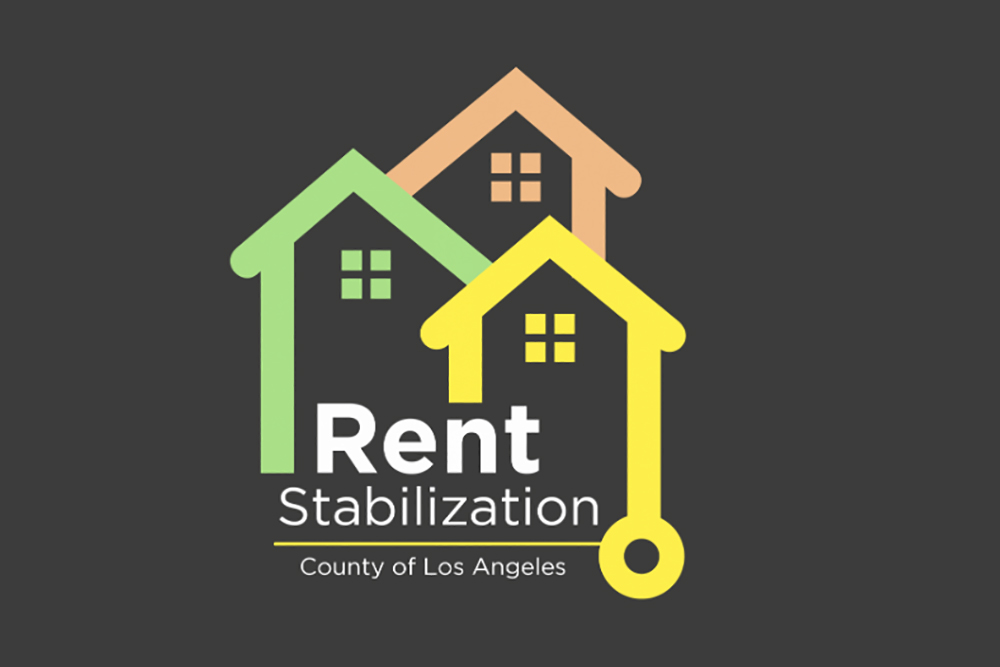Rent Stabilization Program
Here you will find
Rent Stabilization Program
The Rent Stabilization Program oversees and enforces the Rent Stabilization and Tenant Protections Ordinance (RSTPO) and Mobilehome Rent Stabilization and Mobilehome Owner Protections Ordinance (MRSMOPO), which stabilize rents and extend eviction protections for eligible properties. The program also oversees the Rental Housing Oversight Commission (RHOC) which resolves appeals related to the ordinances.
Maximum Allowable Rent Increase
On December 5, 2023, the Los Angeles County Board of Supervisors approved a motion setting a temporary cap on rent increases between January 1 and June 30, 2024 for units/spaces.
4%
January 1, 2024 – June 30, 2024
FREQUENTLY ASKED QUESTIONS
The Los Angeles County Rent Stabilization and Tenant Protections Ordinance (RSTPO) is a local law that limits annual rent increases (rent-stabilized units only) based on changes in the Consumer Price Index (CPI) and provides tenants protections from evictions without just cause for residential rental units in the unincorporated areas of Los Angeles County. The RSTPO also provides a process for property owners to seek relief if they believe they are not receiving a fair return on their rental units under the permitted maximum annual rent increase.
Beginning January 1, 2024, fully covered rental units subject to the RSTPO will be restricted to a maximum rent increase of 4% through June 30, 2024.
The Los Angeles County Mobilehome Rent Stabilization and Mobilehome Owner Protections Ordinance (MRSMOPO) is a local law that limits annual rent increases based on changes in the Consumer Price Index (CPI) increase for mobilehome spaces in the unincorporated areas of Los Angeles County. The MRSMOPO also provides a process for mobilehome park owners to seek relief if they believe they are unable to receive a fair return in the operation of their mobilehome park under the permitted maximum annual rent increase.
Beginning January 1. 2024, mobilehome spaces subject to the MRSMOPO will be restricted to a maximum rent increase of 4% through June 30, 2024.
MOBILEHOME RENT STABILIZATION AND MOBILEHOME OWNER PROTECTIONS ORDINANCE
The chart below explains which units/spaces are subject to the County’s protections and the coverage type:
| Fully Covered Units (Rent restricted and eviction protections) | Partially Covered Units (Eviction protections only) | Mobilehome Spaces (Rent restricted) |
| Located in unincorporated LA County | Located in unincorporated LA County | Located in unincorporated LA County |
| Certificate of Occupancy (or its equivalent) issued on or before February 1, 1995 | Most rental units, including Single Family Homes (SFH) & Condos, unless exempt | Constructed on or before January 1, 1990 |
| Residential unit on a property with two (2) or more units | Containing recreation vehicles, in which the owners of such recreational vehicles have been residing on the mobilehome space for nine (9) or more consecutive months | |
| Mobilehomes offered for rent by the owner of the mobilehome regardless of the date of the certificate of occupancy or equivalent permit | Month-to-month, short-term leases, or long-term leases entered into after February 13, 2020 |
To find out if a property is in an unincorporated area of Los Angeles County, visit the Los Angeles County Registrar-Recorder/County Clerk website and select “District Map Look Up By Address.”
You can access the Los Angeles County Rent Registry system to verify coverage under the Los Angeles County RSTPO and MRSMOPO by visiting www.rentregistry.dcba.lacounty.gov and entering the subject property address or Assessor Parcel Number (APN) in the “FIND” field.
Tenants residing in residential rental units covered by the RSPTO can only be evicted for one of the “Just Cause” reasons listed below, which is broken into two categories: At-fault and No-fault.
At-Fault: Tenant has broken the rental agreement in one or more of the following ways:
- Failure to pay rent exceeding monetary threshold
- Violation of material breach of rental agreement
- Creating a nuisance or using the rental unit for illegal purposes
- Failure to sign a substantially similar lease
- Failure to Vacate as Required by Approved Relocation Application
- Households Exceeding Income Limits in Government Regulated Units
No-Fault (may require relocation assistance): Landlords may evict a tenant where the tenant is not at-fault for the following reasons:
- Landlord or Landlord’s Family Member Move-in
- Withdrawal of Fully or Partially Covered Rental Units from Rental Market
- Government agency or court order.
To learn more about relocation assistance, click here: English / Spanish
MORE SERVICES & INFORMATION
Stay Housed L.A. is a free service that provides income eligible tenants in Los Angeles County with information on their rights and resources to help keep them in their homes. This network of assistance includes community organizations that advocate for tenants, legal service providers, and government partners.
The Rental Housing Oversight Commission protects tenants from rent increases that are inconsistent with County Code and ensures landlords and mobilehome park owners receive a fair return on rents.
The Los Angeles County Rent Registry is an online system where rental property owners can register their rental units, update rental unit information, and pay annual rent registration fees required by the County’s rent stabilization ordinances.
Property owners and tenants may also access the Los Angeles County Rent Registry system to verify coverage under the Los Angeles County RSTPO and MRSMOPO by visiting www.rentregistry.dcba.lacounty.gov, and entering the subject property address or Assessor Parcel Number (APN) in the “FIND” field.
Coming Soon: Rental Property owners and tenants will be able to use our online system to submit documentation for requests related to rent adjustments, pass-throughs, and evictions subject to the Los Angeles County RSTPO and MRSMOPO.

Disclaimer: This page contains a summary of information related to the RSTPO and MRSMOPO and is not legal advice. Readers should consult an attorney for advice on how the RSTPO or MRSMOPO may apply to rental units and mobilehome spaces. Laws and guidelines are frequently amended, and it is the responsibility of the reader to verify the information contained on this site.

